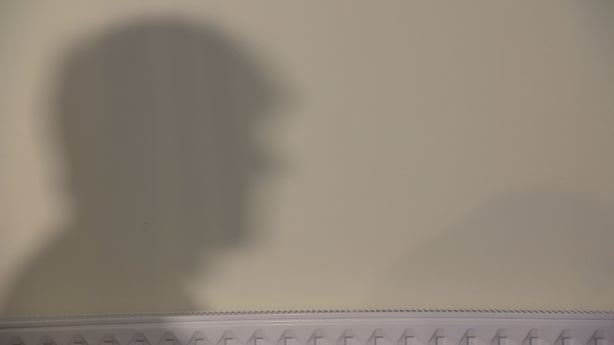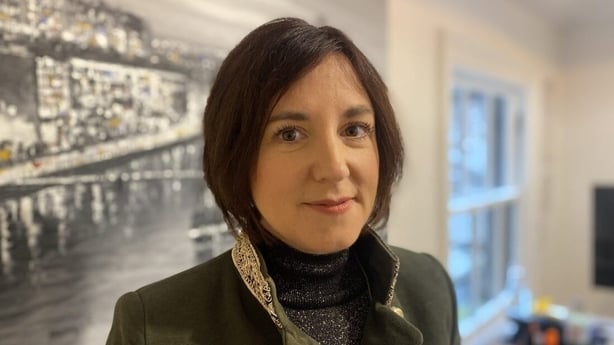There is a growing need for adequate wrap around services to enable women exit prostitution in Ireland, according to a study by the Sexual Exploitation Research Programme (SERP).
It found that vulnerabilities like poverty draw women into the sex trade and traps them in it.
The research involved surveys and interviews was funded by the Community Foundation of Ireland and conducted over a two-year period 2021-2023.
Women from four different continents were represented - namely Africa, Europe, Latin America and Asia.
Among 62 survey respondents, the youngest was 12 years of age at the time of her entry into prostitution, while the oldest was 43.
More than ten of the respondents were children when they were first drawn into the sex trade.
Significant adversities such as poverty, child sexual abuse and neglect, domestic violence, homelessness and addiction were common features in the lives of interviewees.
These adversities often overlapped, which led the women and girls to be very vulnerable to being sexually exploited.
In many instances pimps and traffickers used women's poverty to their advantage, deceiving them with false promises of a better life.
Women said the 'choice' made to enter prostitution was in the context of incredibly constrained and challenging circumstances, again underpinned by poverty.
The majority were first drawn into prostitution as young women, but for some interviewees and nearly one fifth of survey respondents, the sexual exploitation first started when they were still children.
Research published by SERP earlier this year examined what was happening in residential care homes to young people and young girls in particular.
It showed an organised nature in the abuse of young girls once their vulnerabilities were recognised.
They were targeted and preyed upon by pimps and brought to parties and to hotels.
The women involved in the latest SERP study shows were being "drawn in" in similar ways and groomed according to researchers.
Sarah started selling sex when she found herself homeless and addicted to drugs in her 20s.
She had been abused as a child and raped as a teenager which resulted in a disassociation from her body.
"Every time I sat in a car, I took my life into my hands," she said. "The reality was that nobody cared about where I was, knew where I was or what I was doing or what went on."
After a number of years, she moved into an apartment, but the level of danger increased.
"I remember thinking I'm never going to get out of this, where do I go and how do I stop."
"It was more dangerous because a man comes into your apartment and they're in your room, so they get to do more with you.
"The experience I had of selling sex was that men were paying to live out these violent fantasies, and it started getting to me."
As the years went by, she found it more difficult to make money.

"I was getting older and when you are using drugs the way I was, you lose your looks very quickly."
Sarah no longer had the strength to perform sexual acts and the drugs stopped having an impact.
"I got into a really vicious cycle of, I needed to be numb to have sex with strangers and do what they were asking me to do, and I needed money for drugs."
She knew she had to get out, she just did not know where to turn.
"I remember thinking I'm never going to get out of this, where do I go and how do I stop. I still wanted the attention I still wanted to be noticed.
"It's so complex, even now I can't fully understand the feelings around it. I know I became suicidal, not only because I was selling sex and my body was being abused by the way it was being abused, but I was physically addicted to drugs."
Despite a number of false starts, Sarah managed to exit prostitution ten years ago by battling her addiction.
She joined Ruhama five years ago where she helps other women in similar situations.
Sarah holds no disrespect for anyone who identifies themselves as a sex worker.
However, she says they deserve to be kept safe, respected and given access to all the help and care that they need to do what they need to do.
"I've definitely been exploited in other work, but the psychological damage that I've experienced, from selling my body to earn money, nothing would come near that," she said.
"I couldn't in all good faith stand back and be part of a society that says that's okay as a career. It's harmful. People are entitled to make their own choices, but for a lot of people unfortunately because of economic reasons, selling sex is their job."
Associate Researcher with SERP Ruth Breslin said that it is clear from the research that due to the complex needs of women in prostitution - including multiple traumas within the sex trade - they need very specialist support to help them to exit.
SERP has been examining the sex trade in Ireland for over six years and has developed what it has described as "a very clear profile" of who is involved.
It estimates that about 10 to 15% of women in sex trade would fit the "classic definition" of having been trafficked into prostitution.

About 5% approximately describe sex work as a choice and a career for them and something they want to do, which leaves a large cohort of what SERP has described as vulnerable, primarily migrant women who perhaps do not see themselves of having been trafficked, but they also do not see themselves as freely choosing that life.
"They've been drawn in because of those difficult circumstances or because of previous adversities and vulnerabilities in their lives," according to Ms Breslin.
"We're very clear from our research that this is an incredibly harmful and exploitative trade, and international research shows nine in ten women want to get out, but they need those specialist existing supports in order to do so."







